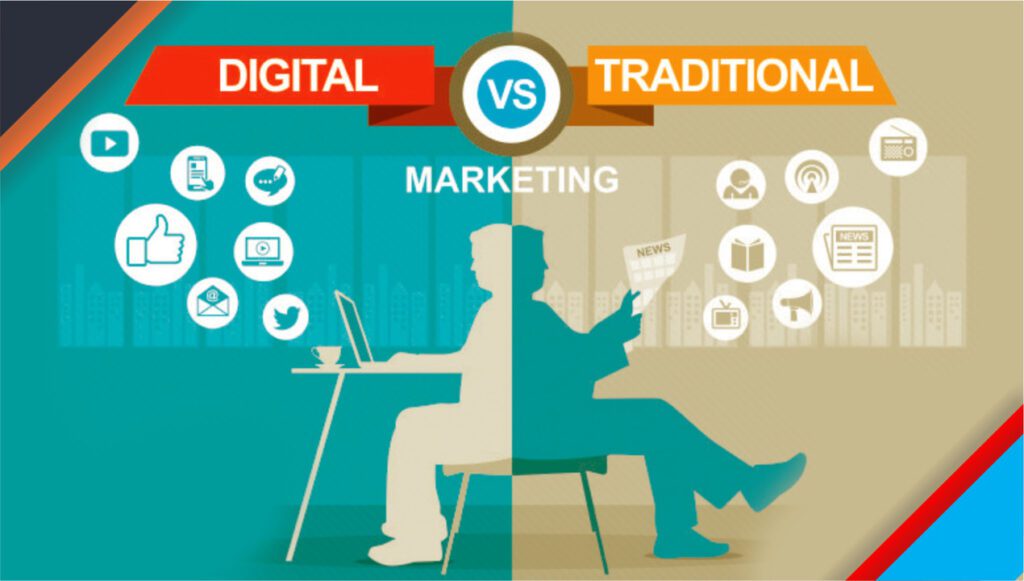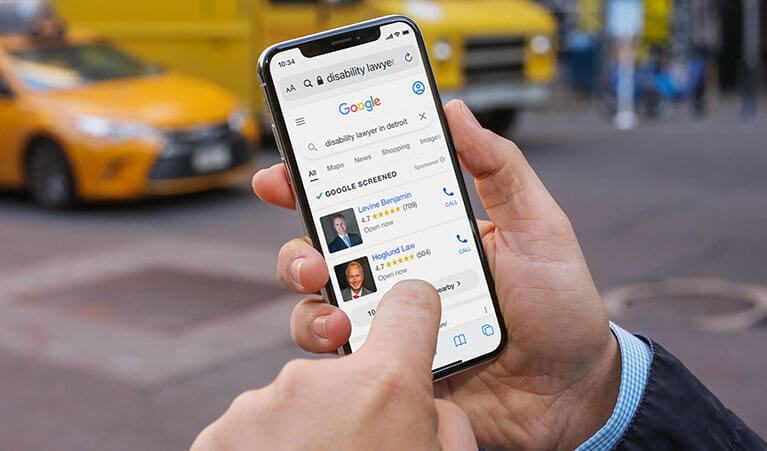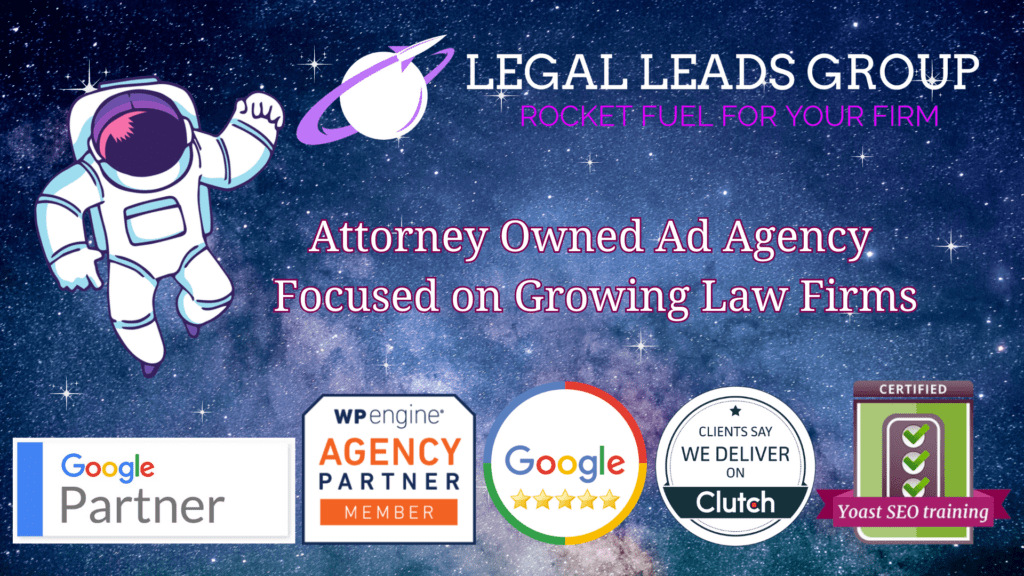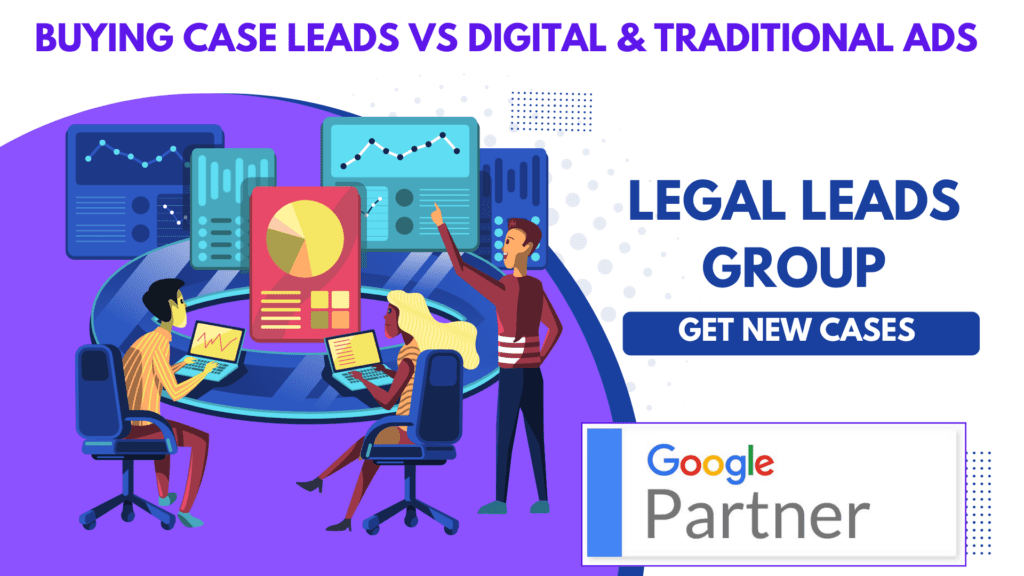Buying Case Leads Versus Digital Marketing and Traditional Advertising for Law Firms
Welcome back to Legal Leads Group’s attorney advertising blog. At LLG, we publish tips and tactics we utilize daily to help our law firm clients obtain better case leads. We believe that by giving back and helping attorneys with free information, real ways they can improve their ads, that one day they may chose to turn to us to manage all their marketing needs. Today’s article touches on buying case leads versus digital marketing and traditional advertising for law firms. We are going to touch on the following topics:
- What is a case lead generation agency and what do they do?
- What is a digital law firm marketing agency and what do they do?
- What is a traditional law firm marketing agency and what do they do?
- What does it mean paying for case leads on an individual basis?
- What is fee sharing when it comes to attorneys?
- Benefits of buying case leads
- Risks and cons to buying case leads
- Benefits to hiring a digital and traditional law firm marketing agency?
- Risks and cons to hiring a digital and traditional law firm marketing agency?
Remember, if you’re ready to launch a campaign today, call (805) 273-8791. Let us provide you with a free case lead campaign analysis. With that said, let’s dive deeper into buying case leads versus digital and traditional advertising for law firms.

What is a Case Lead Generation Agency and What Do They Do?
A case lead generation agency is a specialized service provider that focuses on identifying and capturing potential clients for law firms. These agencies play a crucial role in connecting law firms with individuals who are actively seeking legal representation, thereby streamlining the client acquisition process for attorneys. Here’s a more detailed look at what these agencies do:
Understanding the Role of Case Lead Generation Agencies
- Targeted Marketing Campaigns: Case lead generation agencies employ a variety of marketing strategies to attract potential clients. These strategies often include search engine optimization (SEO), pay-per-click (PPC) advertising, social media marketing, and content marketing. By targeting specific demographics and legal needs, these agencies ensure that the leads generated are relevant and of high quality.
- Lead Qualification: Not all leads are created equal. A significant part of a lead generation agency’s job is to qualify leads to ensure they meet certain criteria before passing them on to law firms. This involves assessing the potential client’s legal needs, urgency, and ability to engage legal services. Qualified leads are more likely to convert into actual clients, saving law firms time and resources.
- Data-Driven Insights: These agencies utilize data analytics to refine their marketing strategies and improve lead quality. By analyzing data from various campaigns, they can identify which strategies are most effective and adjust their approach accordingly. This data-driven approach helps in continuously improving the quality of leads provided to law firms.
- Customized Solutions: Many lead generation agencies offer customized solutions tailored to the specific needs of a law firm. This can include focusing on particular areas of law, geographic locations, or client demographics. By aligning their strategies with the law firm’s goals, these agencies can provide more targeted and effective lead generation services.
- Compliance and Ethics: Lead generation agencies must adhere to strict compliance and ethical standards, especially in the legal industry. They ensure that all marketing practices are in line with legal advertising regulations and that client information is handled with confidentiality and integrity.
- Cost-Effective Client Acquisition: By outsourcing lead generation to specialized agencies, law firms can reduce their marketing costs and focus on their core competencies. These agencies often operate on a pay-per-lead or subscription model, allowing law firms to manage their budgets more effectively.
Benefits of Using a Case Lead Generation Agency
- Increased Efficiency: Law firms can focus on legal work while the agency handles the marketing and lead acquisition.
- Higher Conversion Rates: With pre-qualified leads, law firms experience higher conversion rates and better client engagement.
- Scalability: Agencies can scale their efforts to match the growth and changing needs of a law firm.
- Expertise and Experience: Lead generation agencies bring specialized knowledge and experience in legal marketing, which can be invaluable for law firms looking to expand their client base.
For more insights into how a case lead generation agency can benefit your law firm, you can explore this article written by Clio, which offers lawyer lead services tailored to your unique branding. By partnering with a reputable agency, law firms can enhance their client acquisition strategies and achieve sustainable growth.

What is a Digital Law Firm Marketing Agency and What Do They Do?
A digital law firm marketing agency is a specialized service provider that focuses on enhancing a law firm’s online presence and attracting potential clients through various digital channels. These agencies leverage the power of the internet to create effective marketing strategies that drive traffic, generate leads, and ultimately increase a law firm’s client base. Here’s a more detailed look at what these agencies do:
Key Functions of Digital Law Firm Marketing Agencies
- Search Engine Optimization (SEO): SEO is a critical component of digital marketing that involves optimizing a law firm’s website to rank higher in search engine results. This includes keyword research, on-page optimization, link building, and content creation. By improving a website’s visibility, SEO helps attract more organic traffic from individuals searching for legal services.
- Pay-Per-Click Advertising (PPC): PPC campaigns involve placing ads on search engines and other platforms where law firms pay a fee each time their ad is clicked. This strategy provides immediate visibility and can be highly targeted to reach specific audiences. PPC is particularly effective for competitive legal markets where organic rankings may take time to achieve.
- Social Media Marketing: Social media platforms like Facebook, LinkedIn, and Twitter offer unique opportunities for law firms to engage with potential clients and build brand awareness. Digital marketing agencies create and manage social media campaigns that promote the law firm’s services, share valuable content, and foster community engagement.
- Content Marketing: Content marketing involves creating and distributing valuable, relevant content to attract and engage a target audience. This can include blog posts, articles, videos, and infographics that address common legal questions and showcase the law firm’s expertise. High-quality content helps establish the firm as a thought leader and builds trust with potential clients.
- Website Design and Development: A professional, user-friendly website is essential for any law firm looking to succeed online. Digital marketing agencies often provide website design and development services to ensure that a law firm’s website is visually appealing, easy to navigate, and optimized for conversions.
- Email Marketing: Email marketing campaigns are used to nurture leads and maintain relationships with existing clients. Agencies create targeted email campaigns that provide valuable information, promote services, and encourage recipients to take action.
- Analytics and Reporting: Digital marketing agencies use analytics tools to track the performance of marketing campaigns and provide detailed reports to law firms. This data-driven approach allows for continuous optimization and ensures that marketing efforts are aligned with the firm’s goals.
Benefits of Partnering with a Digital Law Firm Marketing Agency
- Expertise and Experience: Digital marketing agencies bring specialized knowledge and experience in online marketing, which can be invaluable for law firms looking to enhance their digital presence.
- Cost-Effective Solutions: By outsourcing digital marketing, law firms can reduce costs associated with hiring and training in-house marketing staff.
- Scalability: Agencies can scale their efforts to match the growth and changing needs of a law firm, providing flexibility and adaptability.
- Improved ROI: With targeted strategies and continuous optimization, digital marketing agencies help law firms achieve a higher return on investment (ROI) from their marketing efforts.
For law firms looking to improve their online presence and attract more clients, partnering with a digital marketing agency can be a game-changer. Clutch provides a lift of high-performance marketing agencies that delivers strong ROI for law firms by leveraging cutting-edge digital marketing strategies. By working with a reputable agency, law firms can focus on providing exceptional legal services while their marketing efforts are expertly managed.

What is a Traditional Law Firm Marketing Agency and What Do They Do?
A traditional law firm marketing agency specializes in promoting legal services through offline channels, utilizing time-tested methods such as television, radio, and print advertising. These agencies focus on building brand awareness and reaching potential clients through media that have been effective for decades. While digital marketing has gained prominence, traditional marketing remains a vital component of a comprehensive marketing strategy for many law firms. Here’s a closer look at what traditional law firm marketing agencies do:
Core Functions of Traditional Law Firm Marketing Agencies
- Television Advertising: Television ads are a powerful way to reach a broad audience and create a strong visual impact. Traditional marketing agencies produce and place TV commercials that highlight a law firm’s services, expertise, and unique selling points. These ads are often aired during specific time slots to target particular demographics.
- Radio Advertising: Radio remains a popular medium for reaching potential clients, especially during commuting hours. Agencies create engaging radio spots that convey the law firm’s message and encourage listeners to seek legal assistance. Radio ads can be targeted to specific geographic areas and listener demographics.
- Print Advertising: Print media, including newspapers, magazines, and legal journals, offer opportunities for law firms to reach a targeted audience. Traditional marketing agencies design and place print ads that capture attention and communicate the firm’s brand and services effectively.
- Outdoor Advertising: Billboards, transit ads, and other forms of outdoor advertising provide high visibility and can reinforce a law firm’s presence in the community. Agencies strategically place these ads in high-traffic areas to maximize exposure.
- Direct Mail Campaigns: Direct mail involves sending promotional materials, such as brochures and postcards, directly to potential clients. This personalized approach can be highly effective in reaching specific audiences and generating leads.
- Event Sponsorship and Participation: Traditional marketing agencies often help law firms sponsor or participate in community events, legal seminars, and conferences. These activities enhance the firm’s visibility and reputation while providing opportunities for direct engagement with potential clients.
Integrating Traditional and Digital Marketing
While traditional marketing methods are effective on their own, many agencies now combine them with digital strategies to maximize reach and impact. This integrated approach ensures that law firms can connect with potential clients across multiple channels, both online and offline. For example:
- Cross-Promotion: TV and radio ads can direct viewers and listeners to a law firm’s website or social media pages for more information.
- Consistent Branding: Maintaining a consistent brand message across traditional and digital platforms reinforces brand recognition and trust.
- Comprehensive Campaigns: Agencies can design campaigns that leverage the strengths of both traditional and digital media, such as using print ads to promote a webinar or online consultation.
Benefits of Working with a Traditional Law Firm Marketing Agency
- Broad Reach: Traditional marketing methods can reach a wide audience, including those who may not be active online.
- Established Trust: Many consumers still trust traditional media, viewing it as more credible than some digital sources.
- Tangible Impact: Print and outdoor ads provide a physical presence that can leave a lasting impression.
- Complementary Strategies: When combined with digital marketing, traditional methods can enhance overall campaign effectiveness.
TV-Scientific is an example of a legal marketing information website that successfully combines traditional and digital marketing strategies to bring more cases and revenue to law firms. By leveraging the strengths of both approaches, law firms can achieve a balanced and effective marketing strategy that reaches potential clients wherever they are.

What Does it Mean Paying for Case Leads on an Individual Basis?
Paying for case leads on an individual basis, often referred to as the pay-per-lead (PPL) model, is a marketing strategy where law firms purchase leads one at a time, rather than committing to a subscription or bulk purchase. This approach offers flexibility and control over marketing expenditures, allowing law firms to acquire leads as needed and manage their budgets more effectively. Here’s a deeper dive into what this model entails and its benefits:
Understanding the Pay-Per-Lead Model
- Lead Definition: In the context of legal marketing, a lead is a potential client who has expressed interest in a law firm’s services. This could be through filling out a contact form, calling a dedicated phone line, or engaging with the firm through other means.
- Individual Purchase: Unlike subscription models where firms pay a fixed fee for a set number of leads or marketing services, the PPL model allows firms to pay only for the leads they receive. Each lead is priced individually, and firms can decide how many leads to purchase based on their current needs and budget.
- Quality Control: Law firms can often specify criteria for the leads they wish to purchase, such as the type of legal issue, geographic location, or urgency of the case. This ensures that the leads are more likely to convert into actual clients, improving the return on investment (ROI).
- Flexibility and Scalability: The PPL model provides law firms with the flexibility to scale their lead acquisition efforts up or down based on their current caseload and business goals. This adaptability is particularly beneficial for firms experiencing fluctuating demand or those looking to expand into new practice areas.
Benefits of Paying for Case Leads on an Individual Basis
- Cost Control: Law firms have direct control over their marketing spend, paying only for the leads they need. This can prevent overspending and allow for more precise budget management.
- Targeted Acquisition: By purchasing leads that meet specific criteria, firms can focus their efforts on high-quality prospects who are more likely to require their services.
- Immediate Results: The PPL model can provide immediate access to potential clients, which is advantageous for firms looking to quickly fill their pipeline or address slow periods.
- Reduced Risk: Since firms are not locked into long-term contracts or large upfront payments, the financial risk is minimized. This is particularly appealing for smaller firms or those new to lead purchasing.
Considerations and Challenges
- Lead Quality: The quality of leads can vary significantly, and not all purchased leads will convert into clients. It’s important for law firms to work with reputable lead providers who offer high-quality, vetted leads.
- Competition: In some cases, leads may be sold to multiple firms, increasing competition for the same potential client. Firms should inquire about exclusivity options when purchasing leads.
- Cost Per Lead: The cost of individual leads can vary based on factors such as practice area, location, and lead provider. Firms should evaluate the cost-effectiveness of each lead in relation to their conversion rates and potential revenue.
For more insights into the pay-per-lead model and how it can benefit law firms, DesignRush offers detailed discussions and resources. By understanding and leveraging the PPL model, law firms can enhance their client acquisition strategies and achieve more predictable growth.

What is Fee Sharing When it Comes to Attorneys?
Fee sharing, also known as fee splitting, is a practice where legal fees are divided between attorneys, typically when one attorney refers a case to another. This arrangement is common in the legal profession and is designed to compensate the referring attorney for their role in bringing the client to the attorney who ultimately handles the case. However, fee sharing is subject to strict ethical guidelines to ensure that it is conducted fairly and transparently. Here’s a closer look at how fee sharing works and the regulations governing it:
How Fee Sharing Works
- Referral Arrangements: When an attorney refers a client to another attorney, they may enter into a fee-sharing agreement. This is often the case when the referring attorney lacks the expertise or resources to handle the case themselves, or when the case falls outside their practice area.
- Division of Fees: The legal fees collected from the client are divided between the referring attorney and the attorney who handles the case. The specific division of fees is typically agreed upon in advance and documented in a written agreement.
- Client Consent: Ethical guidelines require that the client is informed of the fee-sharing arrangement and consents to it. This ensures transparency and allows the client to understand how their legal fees are being allocated.
Ethical Guidelines and Regulations
The practice of fee sharing is regulated by professional conduct rules to maintain ethical standards in the legal profession. The American Bar Association (ABA) provides guidelines on fee-sharing agreements, which are often adopted or adapted by state bar associations. Key ethical considerations include:
- Proportionality: The fee division should be proportional to the services performed and the responsibility assumed by each attorney. Alternatively, the attorneys must assume joint responsibility for the representation.
- Written Agreement: The fee-sharing arrangement must be documented in a written agreement that outlines the terms of the division and is signed by all parties involved, including the client.
- Client Protection: The arrangement should not increase the total fee charged to the client. The client’s interests must remain paramount, and the fee-sharing agreement should not compromise the quality of legal services provided.
- Disclosure and Consent: Full disclosure of the fee-sharing arrangement must be made to the client, and their informed consent must be obtained. This ensures that the client is aware of and agrees to the financial aspects of their representation.
Benefits and Challenges of Fee Sharing
- Benefits: Fee sharing allows attorneys to collaborate and refer cases to colleagues with the appropriate expertise, ultimately benefiting the client by ensuring they receive competent representation. It also provides a financial incentive for attorneys to refer cases they cannot handle themselves.
- Challenges: Ethical concerns can arise if fee-sharing arrangements are not properly managed. Attorneys must ensure that their agreements comply with ethical guidelines to avoid conflicts of interest and maintain client trust.
Our Take on Fee Sharing
Fee sharing is a common and beneficial practice in the legal profession when conducted ethically and transparently. By adhering to the guidelines set forth by the ABA and state bar associations, attorneys can engage in fee-sharing arrangements that enhance their practice and serve their clients’ best interests. For more detailed information on fee-sharing agreements and ethical considerations, attorneys can refer to the American Bar Association’s Model Rules of Professional Conduct.
Benefits of Buying Case Leads
For law firms looking to expand their client base and increase revenue, buying case leads can be an effective strategy. This approach allows firms to focus on their core competencies—practicing law and serving clients—while outsourcing the marketing and client acquisition process. Here are some of the key benefits of purchasing case leads:
1. Rapid Caseload Expansion
- Immediate Access to Potential Clients: Purchasing leads provides law firms with immediate access to individuals actively seeking legal assistance. This can quickly fill a firm’s pipeline with potential cases, reducing the time spent on traditional marketing efforts.
- Scalability: Firms can scale their lead acquisition efforts up or down based on their current capacity and business goals. This flexibility allows firms to manage their workload effectively and take on more cases as needed.
2. Increased Revenue Potential
- Higher Conversion Rates: Leads are typically pre-qualified, meaning they have already expressed interest in legal services. This increases the likelihood of conversion compared to cold outreach methods, potentially leading to higher revenue.
- Targeted Marketing: By purchasing leads that match specific criteria, such as practice area or geographic location, firms can focus their efforts on high-value prospects who are more likely to require their services.
3. Focus on Core Legal Work
- Reduced Marketing Burden: Buying leads allows law firms to outsource the marketing and client acquisition process, freeing up time and resources to focus on providing high-quality legal services.
- Expertise Utilization: Attorneys can concentrate on their areas of expertise, such as case preparation and client representation, rather than spending time on marketing activities.
4. Cost-Effective Client Acquisition
- Predictable Costs: The cost of purchasing leads is often more predictable than traditional marketing methods, allowing firms to budget more effectively. Firms pay only for the leads they receive, which can be more cost-effective than broad marketing campaigns.
- Reduced Risk: Since firms are not locked into long-term contracts or large upfront payments, the financial risk is minimized. This is particularly appealing for smaller firms or those new to lead purchasing.
5. Competitive Advantage
- Staying Ahead in the Market: By quickly acquiring new clients, law firms can gain a competitive edge in their market. This is especially important in highly competitive practice areas where securing clients quickly can make a significant difference.
Considerations for Ensuring Lead Quality
While buying case leads offers numerous benefits, it’s crucial to ensure the quality of the leads to maximize ROI. Here are some considerations:
- Reputable Lead Providers: Work with established lead providers who have a track record of delivering high-quality, vetted leads. Research and reviews can help identify reliable sources.
- Lead Criteria: Clearly define the criteria for the leads you wish to purchase, such as the type of legal issue, client demographics, and geographic location. This ensures that the leads align with your firm’s capabilities and goals.
- Monitoring and Evaluation: Regularly monitor the performance of purchased leads and evaluate their conversion rates. This data can help refine your lead purchasing strategy and improve outcomes over time.
For more insights into the benefits and potential drawbacks of purchasing legal leads, the National Law Review offers comprehensive discussions and resources. By understanding and leveraging the advantages of buying case leads, law firms can enhance their client acquisition strategies and achieve sustainable growth.
Risks and Cons to Buying Case Leads
While buying case leads can be an effective strategy for law firms looking to quickly expand their client base, it also comes with several risks and potential downsides. Understanding these risks is crucial for firms to make informed decisions and optimize their lead purchasing strategies. Here are some of the primary risks and cons associated with buying case leads:
1. Low-Quality Leads
- Unqualified Prospects: One of the most significant risks is receiving leads that are not genuinely interested in legal services or are not a good fit for the firm’s practice areas. This can result in wasted time and resources as attorneys attempt to convert these leads into clients.
- Inaccurate Information: Leads may come with incomplete or inaccurate information, making it difficult for firms to assess their potential value or even make initial contact.
2. Lack of Residual Value
- No Long-Term Benefits: Purchased leads do not contribute to the firm’s long-term marketing assets, such as a strong brand presence or a loyal client base. Once the leads are exhausted, the firm must continue purchasing new ones to maintain its caseload.
- Dependency on Lead Providers: Relying heavily on purchased leads can create a dependency on lead providers, which may limit the firm’s ability to develop its own sustainable client acquisition strategies.
3. Cost Concerns
- High Costs: While buying leads can be cost-effective in some cases, the costs can add up quickly, especially if the leads do not convert into paying clients. This can strain the firm’s marketing budget without delivering the expected return on investment.
- Variable Quality and Pricing: The quality and pricing of leads can vary significantly between providers, making it challenging to predict costs and outcomes. Firms may end up paying a premium for high-quality leads or receive poor-quality leads at a lower cost.
4. Ethical and Compliance Issues
- Ethical Considerations: Some jurisdictions have specific rules and regulations regarding the purchase of legal leads. Firms must ensure that their lead purchasing practices comply with ethical guidelines to avoid potential legal issues.
- Client Confidentiality: Handling leads involves managing sensitive client information. Firms must have robust data protection measures in place to safeguard this information and maintain client confidentiality.
5. Impact on Firm Reputation
- Potential Damage to Reputation: If a firm consistently receives and pursues low-quality leads, it may develop a reputation for being overly aggressive or desperate for clients. This can harm the firm’s standing in the legal community and deter potential clients.
- Client Experience: Engaging with unqualified leads can lead to negative client experiences, which can result in poor reviews and damage to the firm’s reputation.
Mitigating Risks
To mitigate these risks, law firms should take several proactive steps:
- Thorough Vetting of Lead Providers: Research and select reputable lead providers with a proven track record of delivering high-quality leads. Request references and reviews from other law firms to gauge their experiences.
- Clear Lead Criteria: Define clear criteria for the types of leads the firm is willing to purchase. This includes specifying practice areas, geographic locations, and other relevant factors to ensure alignment with the firm’s capabilities.
- Regular Performance Monitoring: Continuously monitor the performance of purchased leads and analyze conversion rates. Use this data to refine lead purchasing strategies and make informed decisions about future investments.
For more insights into the risks and challenges of buying case leads, check out this article written by The Los Angeles Business Journal. It provides valuable resources and discussions. By understanding and addressing these risks, law firms can make more strategic decisions and optimize their client acquisition efforts.

Why Invest in Digital and Traditional Marketing for Your Law Firm?
In today’s competitive legal landscape, law firms must employ a comprehensive marketing strategy that includes both digital and traditional marketing methods. By leveraging the strengths of each approach, firms can enhance their visibility, attract a diverse client base, and ultimately drive growth. Here’s why investing in both digital and traditional marketing is crucial for law firms:
Benefits of Digital Marketing
- Precise Targeting
- Audience Segmentation: Digital marketing allows law firms to target specific demographics, interests, and behaviors. This precision ensures that marketing efforts reach the most relevant audience, increasing the likelihood of conversion.
- Geo-Targeting: Firms can focus their digital marketing efforts on specific geographic areas, ensuring that their services are promoted to potential clients within their jurisdiction.
- Measurable Results
- Analytics and Insights: Digital marketing provides access to detailed analytics, allowing firms to track the performance of their campaigns in real-time. This data-driven approach enables continuous optimization and improved ROI.
- Performance Metrics: Key performance indicators (KPIs) such as click-through rates, conversion rates, and cost per acquisition help firms assess the effectiveness of their marketing strategies.
- Cost-Effectiveness
- Budget Flexibility: Digital marketing campaigns can be tailored to fit any budget, making it accessible for firms of all sizes. Pay-per-click (PPC) advertising, for example, allows firms to control costs by paying only when users engage with their ads.
- High ROI: With the ability to target specific audiences and measure results, digital marketing often delivers a higher return on investment compared to traditional methods.
- Enhanced Engagement
- Social Media Interaction: Platforms like LinkedIn, Facebook, and Twitter enable law firms to engage directly with potential clients, share valuable content, and build relationships.
- Content Marketing: By creating informative and relevant content, such as blog posts and videos, firms can establish themselves as thought leaders and attract clients seeking expertise.
Benefits of Traditional Marketing
- Broad Reach and Brand Recognition
- Mass Media Exposure: Traditional marketing methods, such as television, radio, and print advertising, can reach a wide audience and enhance brand recognition. This is particularly effective for building a strong local presence.
- Tangible Impact: Physical marketing materials, such as brochures and business cards, provide a tangible connection with potential clients and can leave a lasting impression.
- Credibility and Trust
- Established Reputation: Traditional marketing channels are often perceived as more credible and trustworthy, which can enhance a law firm’s reputation and attract clients who value established brands.
- Community Engagement: Sponsoring local events or participating in community activities can strengthen a firm’s ties to the community and build trust with potential clients.
- Complementary to Digital Efforts
- Integrated Campaigns: Combining traditional and digital marketing efforts can create a cohesive brand message and reinforce marketing campaigns. For example, a print ad can direct readers to a firm’s website or social media profiles for more information.
- Cross-Promotion: Traditional marketing can drive traffic to digital platforms, while digital marketing can promote traditional events or initiatives, creating a synergistic effect.
Strategic Integration
To maximize the benefits of both digital and traditional marketing, law firms should develop an integrated marketing strategy that aligns with their business goals and target audience. This involves:
- Consistent Branding: Ensure that all marketing materials, whether digital or traditional, reflect a consistent brand image and message.
- Coordinated Campaigns: Plan and execute marketing campaigns that leverage the strengths of both digital and traditional channels, ensuring they complement and reinforce each other.
- Continuous Evaluation: Regularly assess the performance of marketing efforts across all channels and adjust strategies as needed to optimize results.
For more insights into the importance of digital marketing for modern law firms, check out this article by Lawmatics. It offers valuable resources and expert advice. By investing in a balanced marketing approach, law firms can enhance their visibility, build a strong brand, and attract a diverse client base.

Digital Law Firm Marketing Delivers Quality Leads of Those Actively Seeking Legal Representation
In the digital age, law firms have the opportunity to connect with potential clients more effectively than ever before. Digital marketing strategies, particularly Search Engine Optimization (SEO) and Pay-Per-Click (PPC) advertising, are instrumental in ensuring that law firms reach individuals who are actively seeking legal representation. These strategies not only enhance visibility but also lead to higher conversion rates by delivering quality leads. Here’s how digital marketing achieves this:
Search Engine Optimization (SEO)
- Increased Visibility in Search Results
- Organic Search Rankings: SEO involves optimizing a law firm’s website to rank higher in search engine results for relevant keywords. This increased visibility ensures that the firm appears prominently when potential clients search for legal services.
- Local SEO: By optimizing for local search terms and utilizing tools like Google My Business, law firms can attract clients in their specific geographic area, making it easier for those seeking nearby legal assistance to find them.
- Targeted Content Marketing
- Informative Content: Creating high-quality, informative content that addresses common legal questions and concerns can attract individuals actively seeking legal advice. This positions the firm as an authority in its field and builds trust with potential clients.
- Keyword Optimization: By incorporating relevant keywords into website content, blog posts, and articles, law firms can ensure that their content aligns with the search queries of potential clients, increasing the likelihood of attracting quality leads.
- Enhanced User Experience
- Website Optimization: A well-optimized website with fast loading times, mobile responsiveness, and easy navigation enhances user experience, encouraging visitors to stay longer and engage with the firm’s services.
- Conversion Rate Optimization (CRO): Implementing CRO techniques, such as clear calls-to-action and user-friendly contact forms, can increase the likelihood of converting website visitors into leads.
Pay-Per-Click (PPC) Advertising
- Immediate Visibility
- Top of Search Results: PPC ads appear at the top of search engine results pages, ensuring immediate visibility to individuals actively searching for legal services. This is particularly beneficial for new or smaller firms looking to compete with established competitors.
- Ad Extensions: Utilizing ad extensions, such as call buttons or location information, can provide additional value and make it easier for potential clients to contact the firm directly from the search results.
- Precise Targeting
- Keyword Targeting: PPC campaigns allow firms to target specific keywords related to their practice areas, ensuring that ads are shown to individuals with a high intent to seek legal representation.
- Demographic and Geographic Targeting: PPC platforms offer advanced targeting options, enabling firms to reach specific demographics or geographic locations, ensuring that marketing efforts are focused on the most relevant audience.
- Budget Control and Measurable Results
- Flexible Budgeting: PPC allows firms to set and adjust budgets based on performance, ensuring cost-effective marketing. Firms only pay when users click on their ads, making it easier to manage expenses.
- Analytics and Reporting: Detailed analytics provide insights into campaign performance, including click-through rates, conversion rates, and cost per lead. This data-driven approach allows firms to refine their strategies for optimal results.
Delivering Quality Leads
By leveraging SEO and PPC, law firms can attract quality leads—individuals who are actively seeking legal representation and are more likely to convert into clients. This targeted approach not only increases conversion rates but also enhances the overall efficiency of the firm’s marketing efforts.
For more insights into how digital marketing can deliver quality leads, read this article by Emotive. It offers expert advice and resources on multiple digital advertising strategies. By investing in digital marketing strategies, law firms can ensure they reach the right audience at the right time, ultimately driving growth and success in a competitive market.

Traditional Law Firm Marketing Improves Your Digital Conversions and Builds Your Law Firm’s Brand
In the evolving landscape of legal marketing, traditional marketing methods continue to play a vital role in complementing digital efforts. By enhancing brand awareness and trust, traditional marketing can significantly improve digital conversion rates and strengthen a law firm’s brand. Here’s how traditional marketing supports digital strategies:
Enhancing Brand Awareness and Trust
- Broad Audience Reach
- Mass Media Exposure: Traditional marketing channels such as television, radio, and print advertising can reach a wide audience, increasing brand visibility. This broad exposure helps establish a law firm’s presence in the community and keeps the firm top-of-mind for potential clients.
- Community Engagement: Participating in local events, sponsoring community activities, or hosting seminars can enhance a firm’s reputation and foster trust within the community. This trust can translate into increased online engagement and conversions.
- Credibility and Authority
- Established Reputation: Traditional marketing is often perceived as more credible, lending authority to a law firm’s brand. This credibility can enhance the effectiveness of digital marketing efforts by reassuring potential clients of the firm’s legitimacy and expertise.
- Consistent Messaging: Consistent messaging across traditional and digital platforms reinforces brand identity and builds trust. When potential clients encounter the same brand message in multiple places, it strengthens their perception of the firm’s reliability.
Supporting Digital Strategies
- Driving Traffic to Digital Platforms
- Cross-Promotion: Traditional marketing can drive traffic to a firm’s digital platforms by including website URLs, social media handles, or QR codes in print ads, brochures, and other materials. This integration encourages potential clients to engage with the firm online.
- Event Promotion: Traditional methods can effectively promote digital events, such as webinars or online consultations, by reaching audiences who may not be active online.
- Complementing Digital Campaigns
- Integrated Campaigns: Coordinating traditional and digital marketing efforts can create a cohesive brand experience. For example, a radio ad can promote a special offer available on the firm’s website, encouraging listeners to visit the site and convert.
- Reinforcing Digital Messages: Traditional marketing can reinforce digital messages by providing additional touchpoints. A potential client who sees a billboard or hears a radio ad may be more likely to click on a digital ad or engage with the firm’s online content.
Improving Digital Conversion Rates
- Building Brand Recognition
- Familiarity Breeds Conversion: When potential clients recognize a law firm’s brand from traditional marketing efforts, they are more likely to trust and engage with the firm’s digital content. This familiarity can lead to higher conversion rates as clients feel more confident in their decision to seek legal representation.
- Emotional Connection: Traditional marketing can evoke emotions and create a personal connection with the audience. This emotional engagement can enhance the effectiveness of digital marketing by making potential clients more receptive to online calls-to-action.
- Leveraging Offline Relationships
- Word-of-Mouth Referrals: Traditional marketing efforts often lead to word-of-mouth referrals, which can drive traffic to a firm’s digital platforms. Satisfied clients who have engaged with the firm through traditional channels may recommend the firm to others, who then seek more information online.
- Networking Opportunities: Traditional marketing provides opportunities for networking and building relationships, which can translate into digital engagement. For example, a firm that sponsors a local event may gain new followers on social media from attendees interested in learning more about the firm.
For more insights into how traditional marketing can support digital strategies, check out this well written article by TKG. It offers valuable resources and expert advice. By integrating traditional and digital marketing efforts, law firms can enhance brand awareness, build trust, and improve digital conversion rates, ultimately driving growth and success in a competitive market.

More Bang for Your Buck – Maximizing Marketing Budget with a Comprehensive Approach
In today’s competitive legal market, law firms are constantly seeking ways to maximize the effectiveness of their marketing budgets. By combining digital and traditional marketing strategies, firms can create a comprehensive approach that delivers more value and impact. This synergy not only enhances brand visibility but also optimizes resource allocation, ensuring that every dollar spent contributes to achieving marketing goals. Here’s how this integrated approach provides more bang for your buck:
The Power of Integration
- Holistic Brand Presence
- Consistent Messaging: By aligning digital and traditional marketing efforts, law firms can maintain consistent messaging across all platforms. This consistency reinforces brand identity and ensures that potential clients receive a unified message, whether they encounter the firm online or offline.
- Increased Touchpoints: Combining both marketing strategies increases the number of touchpoints with potential clients. This multi-channel approach ensures that the firm reaches a broader audience, capturing the attention of individuals who may prefer different media.
- Enhanced Audience Targeting
- Precision of Digital Marketing: Digital marketing allows for precise targeting based on demographics, interests, and online behavior. This precision ensures that marketing efforts are directed towards individuals most likely to seek legal services, maximizing the return on investment.
- Broad Reach of Traditional Marketing: Traditional marketing methods, such as print ads and radio spots, can reach audiences that digital marketing might miss, such as older demographics or those less active online. This broad reach complements the precision of digital efforts.
Cost-Effective Strategies
- Optimized Resource Allocation
- Budget Flexibility: Digital marketing offers flexibility in budgeting, allowing firms to adjust spending based on performance metrics. This adaptability ensures that resources are allocated to the most effective channels, reducing waste and enhancing cost-effectiveness.
- Leveraging Traditional Strengths: Traditional marketing can be cost-effective when strategically used for brand-building and community engagement. Sponsoring local events or placing ads in community publications can yield high returns in terms of brand recognition and trust.
- Synergistic Campaigns
- Cross-Promotion: By using traditional marketing to promote digital platforms, such as websites or social media pages, firms can drive traffic and engagement online. For example, a print ad with a QR code linking to a special online offer can bridge the gap between offline and online interactions.
- Complementary Strategies: Digital ads can be used to reinforce messages delivered through traditional channels. A radio ad might introduce a legal service, while a targeted digital campaign provides detailed information and a call-to-action, guiding potential clients through the conversion funnel.
Maximizing Digital Ad Benefits
- Real-Time Analytics and Adjustments
- Performance Tracking: Digital ads provide real-time analytics, allowing firms to track performance metrics such as click-through rates, conversions, and cost per acquisition. This data-driven approach enables continuous optimization of campaigns for better results.
- A/B Testing: Digital platforms allow for A/B testing of ad creatives, headlines, and calls-to-action. This testing helps identify the most effective elements, ensuring that marketing efforts are fine-tuned for maximum impact.
- Scalability and Reach
- Scalable Campaigns: Digital marketing campaigns can be easily scaled up or down based on budget and performance. This scalability ensures that firms can respond quickly to market changes or capitalize on successful strategies.
- Global Reach: While traditional marketing is often limited to local or regional audiences, digital marketing can reach a global audience. This expanded reach is particularly beneficial for firms offering specialized legal services that may attract clients from outside their immediate area.

Better Case Leads Overall: Attracting Quality Clients with Integrated Marketing
In the competitive legal industry, attracting high-quality leads is crucial for increasing a law firm’s overall caseload and ensuring long-term success. By leveraging both digital and traditional marketing strategies, law firms can enhance their lead generation efforts, targeting potential clients more effectively and efficiently. This integrated approach not only broadens the reach but also improves the quality of leads, ultimately leading to better case outcomes. Here’s how combining these strategies can help law firms attract better case leads:
The Synergy of Digital and Traditional Marketing
- Comprehensive Audience Engagement
- Diverse Demographic Reach: Traditional marketing methods, such as print ads, billboards, and radio spots, can reach demographics that may not be as active online, such as older adults or those in rural areas. Meanwhile, digital marketing targets tech-savvy individuals who frequently use the internet for research and communication. Together, these strategies ensure comprehensive audience engagement.
- Multiple Touchpoints: By utilizing both digital and traditional channels, law firms can create multiple touchpoints with potential clients. This multi-channel approach increases the likelihood of capturing the attention of individuals at different stages of the decision-making process.
- Enhanced Brand Credibility
- Trust Building: Traditional marketing often carries a sense of credibility and trustworthiness. When potential clients see a law firm’s ad in a reputable magazine or hear about it on the radio, it can enhance the firm’s perceived legitimacy. This trust can be further reinforced through digital platforms where clients can find reviews, testimonials, and detailed information about the firm’s services.
- Consistent Brand Messaging: Consistent messaging across both traditional and digital platforms helps reinforce the firm’s brand identity. This consistency builds trust and recognition, making potential clients more likely to consider the firm when they need legal services.
Targeting and Attracting Quality Leads
- Precision Targeting with Digital Marketing
- Data-Driven Insights: Digital marketing provides access to valuable data and insights about potential clients. By analyzing online behavior, demographics, and interests, law firms can tailor their marketing efforts to target individuals who are most likely to require their services, ensuring higher quality leads.
- Retargeting Strategies: Digital platforms allow for retargeting strategies, where ads are shown to individuals who have previously interacted with the firm’s website or social media. This keeps the firm top-of-mind and encourages potential clients to take action.
- Broadening Reach with Traditional Marketing
- Local Community Engagement: Traditional marketing can effectively engage local communities through sponsorships, events, and local media. This engagement not only increases brand visibility but also attracts leads who value community involvement and local expertise.
- Offline to Online Transition: Traditional marketing can drive potential clients to digital platforms for more information. For example, a radio ad might prompt listeners to visit the firm’s website, where they can learn more about services and schedule consultations.
Increasing Overall Caseload
- Streamlined Lead Conversion
- Integrated CRM Systems: By integrating customer relationship management (CRM) systems with both digital and traditional marketing efforts, law firms can streamline lead tracking and conversion processes. This integration ensures that no lead is lost and that follow-ups are timely and effective.
- Personalized Client Interactions: Leveraging data from both marketing channels allows for personalized interactions with potential clients. Personalized communication can significantly increase conversion rates by addressing specific client needs and concerns.
- Continuous Optimization
- Performance Monitoring: Both digital and traditional marketing efforts should be continuously monitored and optimized based on performance metrics. This ongoing analysis helps identify which strategies are most effective in attracting quality leads and allows for adjustments to maximize results.
- Feedback Loops: Gathering feedback from clients about how they found the firm and their experience can provide valuable insights into the effectiveness of marketing strategies. This feedback can guide future marketing efforts and improve lead quality.
For a comprehensive guide to law firm marketing and advertising, CallRail offers valuable resources and expert advice. By integrating digital and traditional marketing strategies, law firms can attract better quality leads, increase their overall caseload, and achieve sustained growth in a competitive market.

Hiring a Full-Service Law Firm Marketing Agency: Bridging Digital and Traditional Marketing
In the ever-evolving landscape of legal marketing, law firms face the challenge of effectively reaching and engaging potential clients through both digital and traditional channels. Hiring a full-service marketing agency that specializes in both areas can be a game-changer, providing the expertise and resources needed to create a cohesive and impactful marketing strategy. Here’s why partnering with such an agency can be beneficial and what to consider when making this important decision:
The Benefits of a Full-Service Marketing Agency
- Comprehensive Expertise
- Integrated Strategy Development: A full-service agency brings together experts in both digital and traditional marketing, ensuring that your law firm benefits from a well-rounded strategy. This integration allows for seamless coordination between online and offline efforts, maximizing reach and effectiveness.
- Specialized Knowledge: Agencies that specialize in law firm marketing understand the unique challenges and opportunities within the legal industry. They are equipped with the knowledge to navigate legal advertising regulations and craft messages that resonate with potential clients.
- Resource Efficiency
- Time and Cost Savings: Managing separate vendors for digital and traditional marketing can be time-consuming and costly. A full-service agency streamlines the process, providing a single point of contact and reducing administrative overhead.
- Access to Advanced Tools: Agencies often have access to advanced marketing tools and technologies that may be cost-prohibitive for individual firms. These tools can enhance campaign performance through better targeting, analytics, and automation.
- Consistent Brand Messaging
- Unified Brand Voice: A full-service agency ensures that your law firm’s brand voice is consistent across all marketing channels. This consistency builds trust and recognition, making it easier for potential clients to connect with your firm.
- Cross-Channel Synergy: By managing both digital and traditional marketing efforts, the agency can create campaigns that complement each other, such as using traditional media to drive traffic to digital platforms.
Key Considerations When Hiring an Agency
- Experience and Track Record
- Industry Experience: Look for agencies with a proven track record in law firm marketing. Their experience will be invaluable in understanding the nuances of legal advertising and developing strategies that comply with industry regulations.
- Case Studies and Testimonials: Request case studies and client testimonials to gauge the agency’s success in delivering results for other law firms. This information can provide insights into their capabilities and effectiveness.
- Range of Services
- Comprehensive Offerings: Ensure that the agency offers a full range of services, including SEO, content marketing, social media management, PPC advertising, public relations, and traditional media buying. This breadth of services allows for a truly integrated approach.
- Customization and Flexibility: The agency should be willing to tailor their services to meet your firm’s specific needs and goals. Flexibility in adapting strategies as your firm grows or market conditions change is also crucial.
- Communication and Collaboration
- Clear Communication Channels: Effective communication is key to a successful partnership. Ensure that the agency provides clear communication channels and regular updates on campaign progress and performance.
- Collaborative Approach: The agency should work collaboratively with your firm, valuing your input and insights. A partnership approach ensures that the marketing strategy aligns with your firm’s vision and objectives.
- Performance Metrics and Reporting
- Data-Driven Insights: A reputable agency will use data-driven insights to guide their strategies and demonstrate the impact of their efforts. Look for agencies that provide detailed reporting on key performance metrics and are transparent about results.
- Continuous Improvement: The agency should be committed to continuous improvement, using performance data to refine and optimize campaigns for better results over time.
By hiring a full-service law firm marketing agency that handles both digital and traditional marketing, your firm can benefit from a cohesive and effective marketing strategy that maximizes reach and impact. This partnership allows your firm to focus on what it does best—providing exceptional legal services—while the agency drives growth and visibility in a competitive market.

Call Legal Leads Group Today – Client’s Say We’re The Best Law Firm Marketing Company
In the competitive world of legal services, attracting and managing high-quality leads is essential for the growth and success of any law firm. Legal Leads Group stands out as the best law firm marketing company, offering innovative solutions that not only enhance lead generation but also streamline the entire lead management process. One of the key innovations offered by Legal Leads Group is Saturn AI, a cutting-edge technology designed to revolutionize how law firms handle inbound leads.
Saturn AI by Legal Leads Group – Transforming Lead Management for Law Firms
- Instant Lead Response
- Real-Time Engagement: Saturn AI ensures that every call and form fill is answered instantly, providing potential clients with immediate attention. This real-time engagement is crucial in the legal industry, where clients often seek prompt responses to their inquiries.
- Attorney Voice Cloning: By cloning the attorney’s voice and likeness, Saturn AI offers a personalized experience that makes potential clients feel valued and understood. This technology bridges the gap between automation and personal interaction, maintaining the human touch that is vital in legal services.
- Efficient Lead Qualification
- Automated Screening: Saturn AI automates the process of qualifying and disqualifying leads, saving valuable time and resources for law firms. By using predefined criteria, the system can quickly assess whether a lead is likely to convert into a client, allowing attorneys to focus on high-potential cases.
- Data-Driven Insights: The AI system provides data-driven insights into lead quality and behavior, helping law firms refine their marketing strategies and improve conversion rates. This intelligence enables firms to make informed decisions about which leads to pursue and how to allocate their marketing resources effectively.
- Enhanced Client Experience
- Consistent Communication: With Saturn AI, law firms can ensure consistent communication with potential clients, reducing the risk of missed opportunities. The system can handle multiple inquiries simultaneously, providing accurate and timely information to each prospect.
- Personalized Interactions: By mimicking the attorney’s voice and style, Saturn AI creates personalized interactions that build trust and rapport with potential clients. This personalization enhances the client experience, increasing the likelihood of conversion.
Why Choose Legal Leads Group?
- Proven Expertise in Law Firm Marketing
- Industry-Specific Solutions: Legal Leads Group specializes in law firm marketing, offering tailored solutions that address the unique challenges and opportunities within the legal industry. Their expertise ensures that your firm benefits from strategies that are both effective and compliant with legal advertising regulations.
- Comprehensive Service Offerings: From digital marketing to traditional advertising, Legal Leads Group provides a full range of services designed to maximize your firm’s visibility and reach. Their integrated approach ensures that all marketing efforts work together to drive results.
- Innovative Technology Integration
- Cutting-Edge Tools: By incorporating advanced technologies like Saturn AI, Legal Leads Group empowers law firms to stay ahead of the competition. These tools enhance lead management and client engagement, providing a significant advantage in a crowded market.
- Continuous Improvement: Legal Leads Group is committed to continuous improvement, regularly updating their technologies and strategies to reflect the latest trends and best practices in law firm marketing.
- Client-Centric Approach
- Customized Strategies: Legal Leads Group works closely with each law firm to develop customized marketing strategies that align with their specific goals and needs. This personalized approach ensures that every campaign is tailored to achieve the best possible outcomes.
- Dedicated Support: With a focus on client satisfaction, Legal Leads Group provides dedicated support and guidance throughout the marketing process. Their team is always available to answer questions, provide insights, and make adjustments as needed.
By choosing Legal Leads Group as your law firm marketing partner, you gain access to innovative solutions like Saturn AI that streamline lead management and enhance client engagement. This partnership allows your firm to focus on delivering exceptional legal services while Legal Leads Group drives growth and success through effective marketing strategies. Call Legal Leads Group today to discover how they can help your law firm thrive in a competitive landscape.
Below are links to additional resources and information about the types of law firms we generate leads for. Call us today at (805) 273-8791 to talk to a live lead generation team member:
